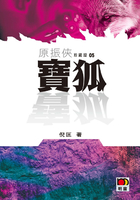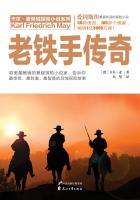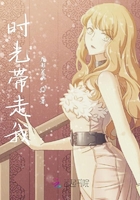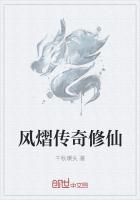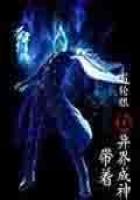ART, SCIENCE–you seem to have paid a fairly high price for your happiness,“ said the Savage, when they were alone. “Anything else?”
“Well, religion, of course,” replied the Controller. “There used to be something called God–before the Nine Years’ War. But I was forgetting; you know all about God, I suppose.”
“Well…” The Savage hesitated. He would have liked to say something about solitude, about night, about the mesa lying pale under the moon, about the precipice, the plunge into shadowy darkness, about death. He would have liked to speak; but there were no words. Not even in Shakespeare.
The Controller, meanwhile, had crossed to the other side of the room and was unlocking a large safe set into the wall between the bookshelves. The heavy door swung open. Rummaging in the darkness within, “It’s a subject,” he said, “that has always had a great interest for me.” He pulled out a thick black volume. “You’ve never read this, for example.”
The Savage took it. “The Holy Bible, containing the Old and New Testaments,” he read aloud from the title-page.
“Nor this.” It was a small book and had lost its cover.
“The Imitation of Christ.”
“Nor this.” He handed out another volume.
“The Varieties of Religious Experience. By William James.”
“And I’ve got plenty more,” Mustapha Mond continued, resuming his seat. “A whole collection of pornographic old books. God in the safe and Ford on the shelves.” He pointed with a laugh to his avowed library–to the shelves of books, the rack full of reading-machine bobbins and sound-track rolls.
“But if you know about God, why don’t you tell them?” asked the Savage indignantly. “Why don’t you give them these books about God?”
“For the same reason as we don’t give them Othello: they’re old; they’re about God hundreds of years ago. Not about God now.”
“But God doesn’t change.”
“Men do, though.”
“What difference does that make?”
“All the difference in the world,” said Mustapha Mond. He got up again and walked to the safe. “There was a man called Cardinal Newman,” he said. “A cardinal,” he exclaimed parenthetically, “was a kind of Arch-Community-Songster.”
“‘I Pandulph, of fair Milan, cardinal.’ I’ve read about them in Shakespeare.”
“Of course you have. Well, as I was saying, there was a man called Cardinal Newman. Ah, here’s the book.” He pulled it out. “And while I’m about it I’ll take this one too. It’s by a man called Maine de Biran. He was a philosopher, if you know what that was.”
“A man who dreams of fewer things than there are in heaven and earth,” said the Savage promptly.
“Quite so. I’ll read you one of the things he did dream of in a moment. Meanwhile, listen to what this old Arch-Community-Songster said.” He opened the book at the place marked by a slip of paper and began to read. “‘We are not our own any more than what we possess is our own. We did not make ourselves, we cannot be supreme over ourselves. We are not our own masters. We are God’s property. Is it not our happiness thus to view the matter? Is it any happiness or any comfort, to consider that we are our own? It may be thought so by the young and prosperous. These may think it a great thing to have everything, as they suppose, their own way–to depend on no one–to have to think of nothing out of sight, to be without the irksomeness of continual acknowledgment, continual prayer, continual reference of what they do to the will of another. But as time goes on, they, as all men, will find that independence was not made for man–that it is an unnatural state–will do for a while, but will not carry us on safely to the end…’” Mustapha Mond paused, put down the first book and, picking up the other, turned over the pages. “Take this, for example,” he said, and in his deep voice once more began to read: “‘A man grows old; he feels in himself that radical sense of weakness, of listlessness, of discomfort, which accompanies the advance of age; and, feeling thus, imagines himself merely sick, lulling his fears with the notion that this distressing condition is due to some particular cause, from which, as from an illness, he hopes to recover. Vain imaginings! That sickness is old age; and a horrible disease it is. They say that it is the fear of death and of what comes after death that makes men turn to religion as they advance in years. But my own experience has given me the conviction that, quite apart from any such terrors or imaginings, the religious sentiment tends to develop as we grow older; to develop because, as the passions grow calm, as the fancy and sensibilities are less excited and less excitable, our reason becomes less troubled in its working, less obscured by the images, desires and distractions, in which it used to be absorbed; whereupon God emerges as from behind a cloud; our soul feels, sees, turns towards the source of all light; turns naturally and inevitably; for now that all that gave to the world of sensations its life and charms has begun to leak away from us, now that phenomenal existence is no more bolstered up by impressions from within or from without, we feel the need to lean on something that abides, something that will never play us false–a reality, an absolute and everlasting truth. Yes, we inevitably turn to God; for this religious sentiment is of its nature so pure, so delightful to the soul that experiences it, that it makes up to us for all our other losses.’”
Mustapha Mond shut the book and leaned back in his chair. “One of the numerous things in heaven and earth that these philosophers didn’t dream about was this” (he waved his hand), “us, the modern world. ‘You can only be independent of God while you’ve got youth and prosperity; independence won’t take you safely to the end.’ Well, we’ve now got youth and prosperity right up to the end. What follows? Evidently, that we can be independent of God. ‘The religious sentiment will compensate us for all our losses.’ But there aren’t any losses for us to compensate; religious sentiment is superfluous. And why should we go hunting for a substitute for youthful desires, when youthful desires never fail? A substitute for distractions, when we go on enjoying all the old fooleries to the very last? What need have we of repose when our minds and bodies continue to delight in activity? Of consolation, when we have soma? Of something immovable, when there is the social order?”
“Then you think there is no God?”
“No, I think there quite probably is one.”
“Then why?…”

